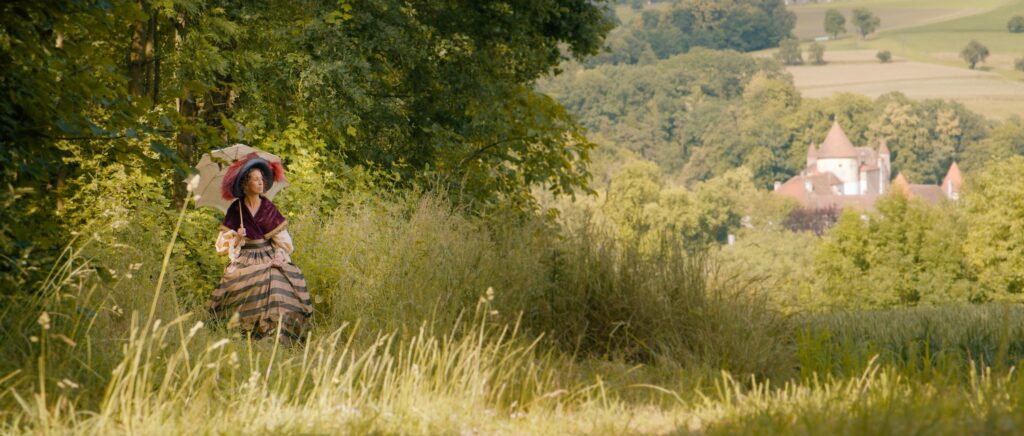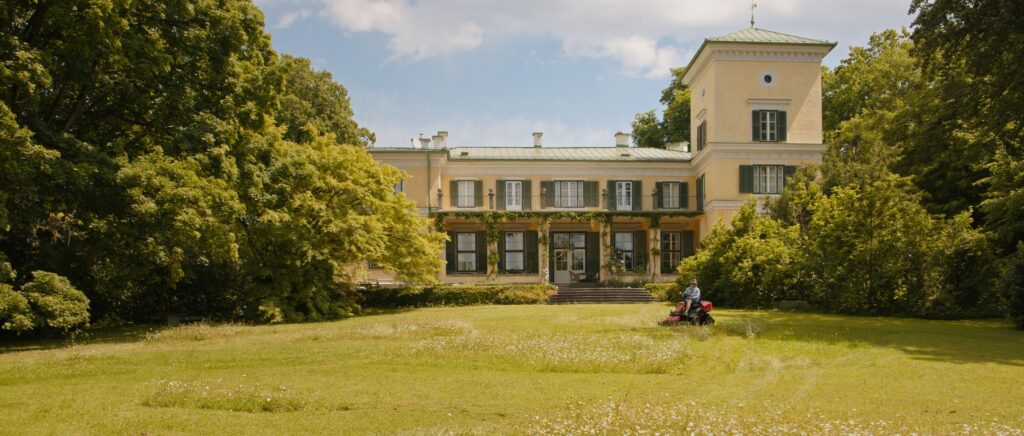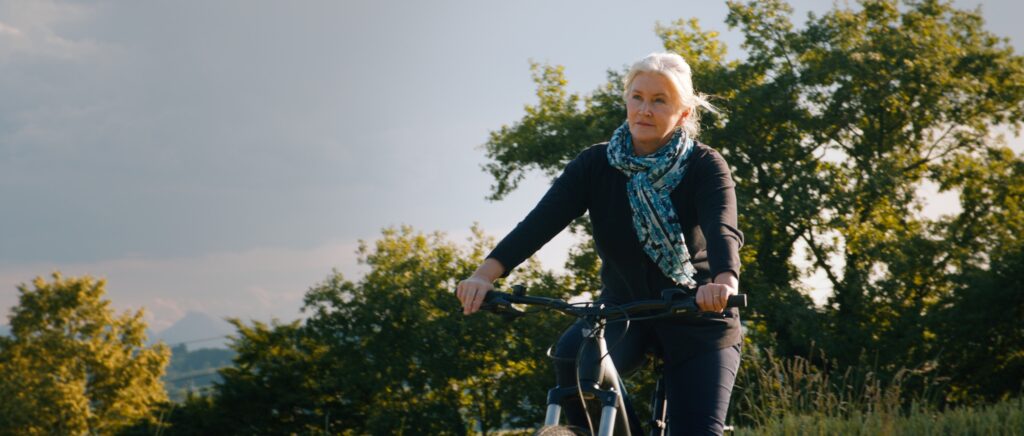
With great personal commitment and against all societal norms, a woman undertakes the upkeep of a historic country manor. In doing so, not only is she writing the next chapter of the house’s history – she is following a legacy of female self-determination that has remained uninterrupted since 1842.
A FILM BY LISA PUNZ & MICHAEL HECHT
Coming soon.

With its multi-generational narrative from a female perspective, the documentary “Her Own Way” represents a contribution to women’s historiography. It describes not only the achievements of the female owners of a country manor, but also the challenges and discrimination they have faced due to the patriarchal structures around them. The history of a single place tells a story that is relevant for society as a whole. Despite the changing political context over the manor’s 180-year-long history, a common thread runs through the generations of its female owners – the striving for self-determination. The film reveals the lives of these women, lives that would have otherwise been forgotten. “Her Own Way” is a story by women about women. It is a story that must be told.
SUMMARY
On a hill at the outskirts of an Upper Austrian town, hidden behind old trees and hedges fencing the property, is an architectural jewel – the Villa Friedegg [free-deg]. It was built in 1842 by Countess Konstantine Rasumoffsky – née Thürheim – as her residence after becoming a widow. The owners steering the fortunes of the picturesque property have changed frequently over the past 180 years. And remarkably, these owners have all been women – even today.
We accompany Elisabeth, the current owner and resident of the Villa Friedegg, around her estate. We gain an impression not only of her work and life, but also the kind of passion needed to maintain the spirit of such a home.
The stories we know about the lives of the women who have lived at Friedegg document the social structures and conventions of their respective lifetimes, social structures and conventions as they developed and became established over the centuries always to the detriment of women. Frighteningly, the challenges faced by the women of Friedegg are still familiar today. But it is admirable how these women asserted themselves tenaciously within those structures. None of them conformed to the social norms of their time.
This makes it clear that the issues and social challenges women had to face in the past are similar to those still faced by women today. Not only is this a recurrent theme running through the history of women in general, it is also a theme running through this film.
These unchanging issues are highlighted by diary entries of the Villa Friedegg’s female owners, as well as by fictional encounters between the protagonists in which the different time periods of their lives are gradually suspended.
The protagonists of this film documentary, which also includes some fictional elements, tell their stories in their common home, Villa Friedegg. They are the stories of courageous women who, from the mid-19th century to the present, each one in the context of her own time, were able and often had to take their destiny into their own hands.
SYNOPSIS






- DIRECTOR: Lisa Punz
- SCENIC DIRECTION: Yvonne Zahn
- DRAMATURGY: Stephan Lack
- CAMERA/DOP: Pavol Kutik
- GAFFER: Lisa Faderl
- COSTUME DESIGN: Birgit Hutter
- MAKEUP ARTIST: Anna Maurer
- MUSIC & SOUND DESIGN: Michael Hecht
- AUDIO PRODUCTION: Patrick Walter
- PRODUCER: Michael Hecht
- and many more
CREDITS
- LULU THÜRHEIM: Manuela Linshalm
- MINA PICK: Lisa Schrammel
- IDA HOGENFORST: Caroline Richards
- MARGARETHE HABSBURG: Michaela Kaspar
- ALICE LEDEBUR-WICHELN: Alexandra-Maria Timmel
- ELISABETH FRIES as a girl: Marie Denner
- ELISABETH FRIES: Elisabeth Fries
- ARTIST: Julia Maurer
- and many more
